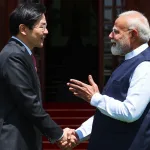Education is a fundamental pillar upon which the progress and development of any society rest. It serves as the cornerstone for individual growth, societal advancement, and the cultivation of a thriving community. The role of education goes beyond the traditional classroom setting, extending its influence into every aspect of human life.
Empowerment and Individual Development
One of the primary functions of education is to empower individuals with knowledge and skills that enable them to lead fulfilling lives. It equips people with the tools needed to navigate the complexities of the modern world, fostering critical thinking, problem-solving abilities, and creativity. Education acts as a catalyst for personal development, allowing individuals to discover their strengths, interests, and passions.
Social Cohesion and Community Building
Education plays a crucial role in fostering social cohesion and community building. Through formal education systems, individuals from diverse backgrounds come together, breaking down societal barriers and promoting understanding. Exposure to different cultures, perspectives, and ideas encourages tolerance and acceptance, creating a more harmonious and inclusive society.
Economic Prosperity
A well-educated populace is essential for economic prosperity. Education provides the workforce with the necessary skills to participate in the global economy. Countries that invest in education often experience higher levels of innovation, productivity, and competitiveness. Education is a key driver of social mobility, offering individuals the chance to improve their economic status and contribute meaningfully to the workforce.
Cultural Preservation and Evolution
Education also plays a pivotal role in preserving and evolving cultures. It serves as a vehicle for transmitting cultural heritage, values, and traditions from one generation to the next. At the same time, education facilitates adaptation and evolution, allowing societies to embrace new ideas and technologies while retaining the essence of their identity.
Critical Thinking and Informed Citizenship
An educated populace is essential for the functioning of a democratic society. Education fosters critical thinking and encourages citizens to question, analyse, and evaluate information. Informed citizens are better equipped to actively participate in civic life, make informed decisions, and hold those in power accountable.
Global Awareness and Responsibility
In an interconnected world, education is a key driver of global awareness and responsibility. It instils a sense of environmental consciousness, social responsibility, and a commitment to sustainable development. Through education, individuals become global citizens, understanding the interdependence of nations and the importance of collective efforts to address global challenges.
The role of education in shaping societies is multifaceted and indispensable. It empowers individuals, builds communities, drives economic prosperity, preserves and evolves cultures, and fosters informed citizenship. Recognizing the transformative power of education is essential for societies committed to progress, equity, and the overall well-being of their citizens. As we navigate the complexities of the 21st century, investing in education remains a strategic imperative for building a brighter and more sustainable future.
(The Author is Assistant Professor, Chandigarh University)





